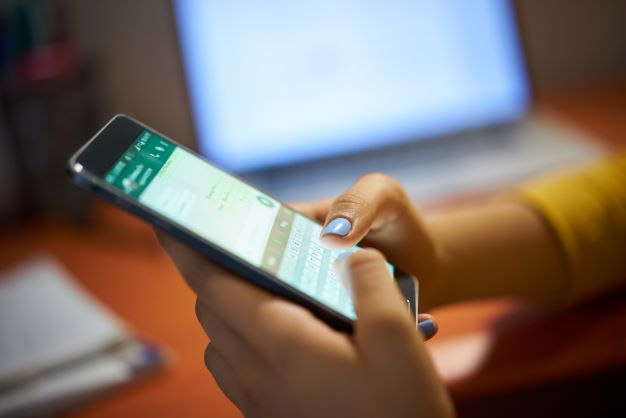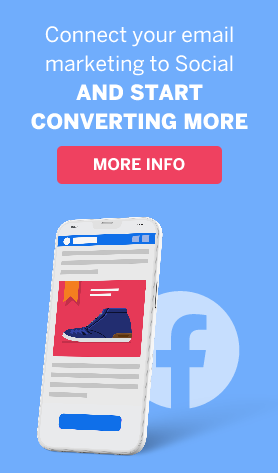Everything You Need to Know about WhatsApp Marketing
The long established mayonnaise brand, Hellmann’s, will be forever remembered as one of the first advertisers to harness the power of the WhatsApp application for a winning marketing campaign. It happened in 2014, well before Facebook’s acquisition of the company, and only 5 short years after WhatsApp first appeared on the scene. Already back then, Hellmann’s recognized the communal potential of the application and launched a campaign that was well ahead of its time: customers wishing to receive home cooking recipes that include the company’s mayonnaise, were asked to click on a button on Hellmann’s homepage. Clicking on the button led them to a WhatsApp group (groups were quite rare at the time) where they were inundated with promotions, recipes, tasty dishes, and ideas for making the most out of leftovers – and everything with lots of mayonnaise, of course.
Hellmann’s WhatsApp campaign was considered to have broken new ground, but since then billions of chat messages have been transmitted over WhatsApp. You’ll be hard pressed to find someone that isn’t familiar with the instant messaging app that has taken the world by storm, with over 5 billion (yeah, with a ‘b’) downloads. Hellmann’s used WhatsApp massive distribution to establish a specialized user group, and they aren’t alone. Thousands of brands that followed in Hellmann’s footsteps, laid the ground for the birth of WhatsApp Business in 2018.
The COVID 19 pandemic that broke out in 2020 further etched WhatsApp top spot in the annals of digital marketing, by removing the need for people to leave their homes and proving, beyond doubt, its value as a marketing tool. WhatsApp continued to gain in popularity even as the crisis lost steam, allowing brands to strengthen their commercial dialogue with their customers and clients by sending them delivery updates, meeting reminders, airplane ticket reservation or boarding alerts, product samples, catalogs, satisfaction surveys, awareness messages, and more. And that’s not all. The application let’s you orchestrate smart customer journeys that enhance customer experiences prior to purchases, and well afterwards.
7 immutable WhatsApp marketing rules
1. Introducing… Your customers
Marketing on WhatsApp is probably the most dynamic tool available today to digital marketers. Have you ever asked yourself: “Where can I bring together hordes of relatively homogeneous customers, send them marketing messages, and chat with them through a two-way, easy, and flowing communication channel?” If you’re up to hearing what your customers have to say about you, in real-time, to responding to them quickly, and to initiating data-driven marketing activities – you’ve reached the right chat.
2. Effective, not only in Digital
The place that WhatsApp has carved out in all of our lives has extended the application’s effectiveness outside of the digital space and into the physical world. Your next marketing campaign doesn’t need to be tied to your online store. Just post a disappearing status about an in-store “Price Drop” or send a scannable QR code, and you’re deep into combining digital with physical.

WhatsApp marketing software (Photo: Deposit-Photo)
3. Ladies and gentlemen – Surveys
WhatsApp is a great tool for publishing customer satisfaction surveys – an integral part of any marketing plan. The speedy messaging app is perfect for posting surveys and helps brands collect immediate and honest feedback from their customers. The capacity to accurately segment surveys and to match them to relevant groups makes this feature especially effective and direct.
4. Customer service is the new marketing
Establishing a WhatsApp customer service framework is an excellent first step in cultivating and bolstering your ties with your customers. Its not only about marketing and sales messages, but also about providing your customers with quick service by supplying them with regular updates, operational notices, and service calls. Additionally, you can use artificial intelligence to manage your WhatsApp customer service operations, until, if necessary, human intervention is called for.
5. Transparency, Above All
Just as you, as WhatsApp users, ask to know who you’re chatting with at any given moment, so to do your customers deserve the same from your brand. As mentioned, WhatsApp is an integral part of our lives and most of us think of the app as sacred space. What does this mean? It means that your business profile must be above board, unveiled and transparent, including your logo and contact information for replies.
6. Don’t go at it alone
Of course, you can open a group on your own, compose messages, and choose emojis to send out to your entire distribution list – but don’t do it alone. Use WhatsApp marketing software or a system for sending WhatsApp messages, and you’ll save yourself lots of grief. These systems connect to your contact list and work great with your customer journeys.
7. Lowkey is the key
Want to capture your customer’s attention on WhatsApp? Let them feel like they are part of a conversation. Don’t market aggressively, don’t shout out your ads. Be interesting, funny, and exciting. Don’t bombard your customers with messages and remember – it’s in your hands. WhatsApp’s rules allow message recipients to report senders or to mark them as SPAM. Don’t go there.

